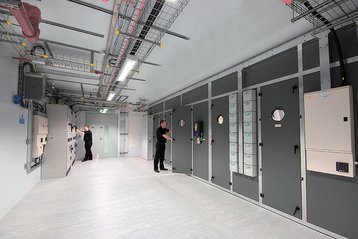British modular data center maker BladeRoom Group (BRG) has sued Facebook in a US court, alleging that the online giant stole its designs to build its Lulea data center, and then shared those designs with the industry through the Open Compute Project.
Few details of the lawsuit are available, but it is reported that BladeRoom has filed a suit in the San Jose, California, federal district court claiming that it discussed its modular data center technology with Facebook in 2011, and then saw elements of its designs used in the data center which Facebook opened in Lulea, Sweden in 2014.
Niether BladeRoom nor Facebook have made public statements as yet, but BladeRoom staff have confirmed the the firm is in litigation with Facebook.
Open Compute questions
“Facebook’s misdeeds might never have come to light had it decided that simply stealing BRG’s intellectual property was enough,” says the lawsuit, quoted by IDG News Service. “Instead, Facebook went further when it decided to encourage and induce others to use BRG’s intellectual property though an initiative created by Facebook called the ‘Open Compute Project’.”
Originally building modular plant for hospitals and other buidings, BladeRoom has made a name for itself in data centers since 2008, with ”IT-ready” building modules which have been used in highly efficient data centers such as those run by Ark Continuity
BladeRoom has expanded into the US, through a partnership with Rosendin Holdings, and also made sales elsewhere including Australia. It claims that PUE (power usage effectiveness figures) of around 1.09 can be achieived with its equipment, through testing the modular kit in a simulated environment.
Facebook’s Lulea data center uses modular “flatpack” building techniques, and few partners have been named int he project, apart from Emerson Network Power which Facebook hired to implement the modular design it used in the data center..
The project team for Lulea won a DatacenterDynamics award for the rapid deployment of the technology.
Designs from Lulea have been shared through the Open Compute Project, which releases hardware specifications as open source, so other vendors and customers in the industry can benefit from them.
However, all intellectual property shared through Open Compute must be shared with the owner’s consent, and this appears to be what BladeRoom is alleging that Facebook failed to do.


